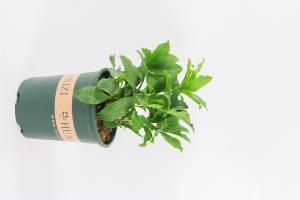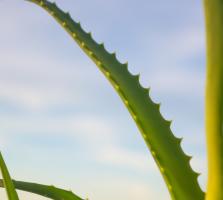Will Pool Water Kill Plants?
Many people wonder if using pool water to water their plants is safe. While it might seem convenient to use water from the pool, it can have adverse effects on plants. In this article, we will explore the question, "Will pool water kill plants?" and look at the science behind it.
Chlorine and Salt
Typically, pool water is treated with chlorine to keep it free of bacteria and algae. Chlorine is a highly effective disinfectant that is lethal to bacteria, viruses, and other microorganisms. It is also harmful to plants, and exposure to high levels of chlorine can damage plant tissue.
In addition to chlorine, many pool owners add salt to their pools to create a saline solution for disinfecting purposes. While salt is less harmful to plants than chlorine, high concentrations of salt can still cause damage to plants.
Effects on Soil
Using pool water on plants can also affect the soil. Chlorine and salt in pool water can build up in the soil over time, making it more difficult for plants to absorb nutrients and water. This can result in stunted growth and even death of the plants.
Furthermore, pool water can change the pH level of the soil. Plants have different requirements for soil pH levels, and if the pH level is altered, it can affect their ability to grow and thrive.
Alternative Water Sources
If using pool water is not recommended for watering plants, are there any alternative sources that can be used? Rainwater is an excellent source for plants, as it is naturally free of chlorine and salt and has a balanced pH level. Collecting rainwater in a water butt or a barrel is a great way to save water and provide your plants with a natural source of hydration.
Another option is to use tap water. While tap water may contain some chlorine, it is typically not harmful to plants, as the concentration is low. It is also a convenient and readily available source of water.
Conclusion
While using pool water to water plants may seem convenient, it can have negative effects on both plants and soil. Chlorine and salt in pool water can damage plant tissue and alter soil pH levels, making it difficult for plants to absorb nutrients and water. In contrast, rainwater and tap water are both great alternatives for watering plants, as they are both natural sources of hydration that are free of harmful chemicals. So, if you want your plants to grow and flourish, it's best to avoid using pool water and opt for a safer alternative instead.

 how many times do yo...
how many times do yo... how many planted tre...
how many planted tre... how many pine trees ...
how many pine trees ... how many pecan trees...
how many pecan trees... how many plants comp...
how many plants comp... how many plants can ...
how many plants can ... how many plants and ...
how many plants and ... how many pepper plan...
how many pepper plan...
































